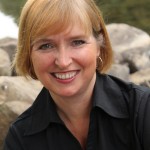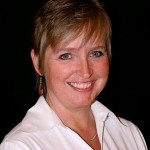- Agents
- Author News, Deals
- Awards
- Bad Poetry
- Blog News
- Books
- Career
- CBA
- Collaborating and Ghosting
- Conferences
- Current Affairs
- Deep Thoughts
- Favorite Books
- Featured
- Film
- Marketing and Platforms
- Proposals
- Publishing
- Questions from Beginners
- Quick Tips
- Religion
- Resources for Writing
- Self-Publishing
- Social Media Critique
- The Business of Writing
- The Writing Craft
- Thursdays with Amanda
- Trends
- Uncategorized
- Web/Tech
Category : Author News, Deals
-
Continue Reading "To Work or Not To Work With a Particular Agent"
To Work or Not To Work With a Particular Agent
Thoughts on agents as the publishing industry continues to transform:
Someone wrote to say, “I’ve been offered a contract on my novel. Since I don’t have an agent, should I seek one at this point? And if the agent accepts, should he or she still receive 15% of the deal, even if they didn’t market my book or secure the deal for me? Would it be better to have the agent simply review the contract for a fee?”
There’s quite a debate about this issue. I suppose many agents would say, “Sure — call me!” They’d be happy to get 15% for a deal they’ve done no work on. But my advice would be to think long term. Is there an agent you like and trust — someone you want to work with in the long term? If so, call him or her. Talk about the situation. Explain that you’ve already got a deal. The agent may be willing to take less in order to work with you. They may review the contract for a fee. They may have some insight into your situation. But don’t sign with someone just because you think you need an agent and someone is willing to say yes. If, for example, you’ve got a $10,000 advance coming, make sure it’s worth the $1500 to have the agent assist with this contract. Sure, it may be worth it — if you’ve got a complex situation, or a novel that is going to be made into a movie, or a potential bestseller… those probably call for a good agent to get involved.
That said, it doesn’t really seem fair to me to take the full commission for a book I didn’t sell, though not everyone in the industry agrees with me. You can always talk with a contract-review specialist, who will review your contract for a flat fee (usually somewhere in the $500-to-$1000 range). You can
-
Continue Reading "Thursdays with Amanda: Odds and Ends"
Thursdays with Amanda: Odds and Ends
 Amanda Luedeke is a literary agent with MacGregor Literary. Every Thursday, she posts about growing your author platform. You can follow her on Twitter @amandaluedeke or join her Facebook group to stay current with her wheelings and dealings as an agent. Her author marketing book, The Extroverted Writer, is available from Amazon and Barnes & Noble.
Amanda Luedeke is a literary agent with MacGregor Literary. Every Thursday, she posts about growing your author platform. You can follow her on Twitter @amandaluedeke or join her Facebook group to stay current with her wheelings and dealings as an agent. Her author marketing book, The Extroverted Writer, is available from Amazon and Barnes & Noble.It’s late in the day, and whoops…didn’t get my Thursday post up!
So I’m going to wimp out this week and instead link to some cool things:
I was interviewed for the local paper. (P.s. How do you even go about buying one copy of the paper?! This is a mystery to me! Walgreens? Or maybe I should wander downtown until I come upon one of those dispenser thingies?)
Next weekend, I’ll be at the Indiana Faith & Writing Conference.
Remember that book page I created last week? It’s been viewed a whopping 6 times.
And recently, I got to report a book deal that I’m pretty excited about:
September 19, 2014 – THE 7 LAWS OF LOVE by Dave WillisNon-fiction: Advice/Relationships
Blogger, speaker, and creator of the 820,000+ Facebook community “Marriage” Dave Willis’s THE 7 LAWS OF LOVE, a look at the seven truths that define love and how to apply them to our relationships, to Brian Hampton at Thomas Nelson, in a very nice deal, for publication in early 2016, by Amanda Luedeke atMacGregor Literary.
What have you been up this this past week career-wise?!
-
Continue Reading "Seven Things I'm Thinking About on a Friday"
Seven Things I'm Thinking About on a Friday
First, big news about an author we represent: thriller Maegan Beaumont’s Carved in Darkness won the IPPY Award Gold Medal in the Suspense/Thriller category. If you haven’t read it, you owe it to yourself to read her gripping, moody novel about a homicide investigator who begins looking into a crime and finding echoes of her own past. Congratulations, Maegan!
Second, novelist Holly Lorincz took the IPPY bronze medal in the General Fiction category for Smart Mouth — quite an achievement when you consider there were more than 5000 entrants. I have said numerous times that Smart Mouth was one of the best debut novels I’ve ever represented, and I love her story of a shy first-year teacher having to deal with the contemporary problems of small town high schoolers, all while balancing her own relationships and being coerced into coaching the speech and debate team. You can find her book on Amazon, and I guarantee you’ll enjoy it. Congrats to Holly (who works here part-time, by the way).
Third, several people have asked me what I think are the best conferences and workshops available. In my view, there are too many to count these days. I just got back from a wonderful Blue Ridge writer’s conference, and I think it has morphed into the best CBA conference for writers. There are a number of smaller writing conferences going on this summer, and many will be good — Breadloaf, Willamette, MidWest Writers Workshop, Thrillerfest. I’ll be at the Willamette conference, as well as at Western Writers of America. Of course, I tend to think RWA and ACFW are simply the two best “big” conferences on the planet. A great place to meet other writers, get introduced to the industry, and learn from experienced writers, editors, and agents.
Fourth, bestselling author Janice Thompson (Weddings by Design, Weddings by Bella, Texas Weddings, etc) is now teaching some online writing courses. If you
-
Continue Reading "And the biggest successes of 2013 were…"
And the biggest successes of 2013 were…
In this week’s issue of Publisher’s Weekly, they have their annual report on the bestsellers of the previous year. I always enjoy reading about it and discussing it with authors, because nothing gives perspective more than a number. You see, authors like to talk about having books “sell a million copies,” and I’ve frequently seen proposals in which writers make wild promises about selling millions, since the audience for a particular topic is considered huge. (“There are 246 million people with dandruff in this country! There’s a ginormous market for my book on hair care!”)
But then every spring PW releases its report, and everyone gets a dose of reality. How many hardcover novels sold a million copies in 2013? One — Dan Brown’s Inferno. How many hardcover nonfiction books sold a million copies? Three — Bill O’Reilly’s Killing Jesus and two of the “Duck Commander” books, Happy, Happy, Happy and Si-Cology. How many trade paper books sold a million copies? One — and it was released decades ago… F. Scott Fitzgerald’s The Great Gatsby. There was only one mass market book that sold a million copies, proving that this formerly big-number format is quickly dying off, replaced by digital books — George R.R. Martin’s A Game of Thrones.
On the children’s side, there were a handful of books that passed the million mark. Jeff Kinney’s Hard Luck: Diary of a Wimpy Kid #8 sold more than three million copies, and was the biggest seller in one format of any book sold last year. But Veronica Roth’s Allegiant and Insurgent, Rick Riordan’s The House of Hades, and John Green’s The Fault in Our Stars also hit the mark. (Two other titles probably did: Marcus Zusak’s The Book Thief and Dr. Suess’ Green Eggs and Ham, but the numbers are unclear because of several factors.) Still, when it comes to print copies, that means there were
-
Continue Reading "What's wrong with buying your way onto the bestseller list?"
What's wrong with buying your way onto the bestseller list?
Last week I made a point of saying that I think a guy who buys his way onto the bestseller lists is a weasel, and I had a bunch of people write to ask me why. This is a worthwhile topic for everyone in publishing, so let me offer some background…
Mark Driscoll pastors a large church in Seattle. Last fall he was accused of plagiarizing the words of another author, Peter Jones, in his latest book, and in addition there were other examples given of him plagiarizing, including pages of text recreated word-for-word from a Bible commentary and stuck into one of the church’s publications. The people at Driscoll’s church made the situation worse, first claiming it was okay because one of the obviously plagiarized documents had never been sold, then changing their story when it turns out it had indeed been sold, but saying they hadn’t made much, then blaming it all on un unnamed research assistant (even though it had Mark Driscoll’s name on it), then taking pains to criticize the “haters” instead of owning up to their own ignorance and laziness. The whole thing was a mess. Driscoll clearly plagiarized (whether you want to cut him slack and call it something else), and his publisher examined the book and released a statement that admitted there were “inadequate citations,” but defending him for handling the situation well. In the end, the entire mess faded away. I was a bit surprised, since I’ve seen books get cancelled and editorial careers get ruined over less than this. Still, we all moved on.
Until last week, when it was revealed that Rev. Driscoll had paid a marketing firm, ResultSource, more than $200,000 to get his book onto the New York Time bestseller list. The scheme included hiring people to purchase 6000 copies of the book in bookstores, then ordering another 5000 copies in bulk. They even made sure to use
-
Continue Reading "Here’s the Deal"
Here’s the Deal
AGENT and VICE-PRESIDENT at MACGREGOR LITERARY
Glad to be back. I’m excited to start the year with a monthly blog series, HERE’S THE DEAL.
I often find the story behind the deal – the journey to publication – as exciting as making the deal itself. Given that, on the first Friday of each month, I’ll be offering glimpses into the backstory of how a particular book came to be published. And not from hearsay, but directly from the perspective of the acquiring editor.
Of course it is a big day when an author hears those long-awaited words from their agent “we have a deal!” But as anyone who works in traditional publishing knows, getting to that point is rarely quick and never, never easy. And it’s not just the author and agent who labor to sell a book, but also the acquiring editor who works diligently to champion and support a project all the way through, from initial discovery all the way through acquisition, editing, marketing, release, and beyond.
To kick things off, I interviewed Marc Resnick, Senior Editor at St. Martin’s Press, an imprint of Macmillan. In addition to having an office in the Flatiron – one of the coolest buildings in New York City – Marc is a pretty cool guy himself, and we’ve kept in touch since first meeting at a conference a few years ago.
Though he and I have yet to do a deal together, we share an affinity for military topics. So, when we spoke for this interview I wasn’t surprised he chose to tell me the story behind the acquisition and success of the 2011 title SEAL TEAM SIX by Howard E. Wasdin and Stephen Templin.
The Team Behind SEAL TEAM SIX
Marc told me that when he received the proposal, originally titled Confessions of a Navy Seal Sniper, he read it immediately. A big part of his motivation
-
Continue Reading "Acquisition Editors"
Acquisition Editors
BY CHIP MACGREGOR
Someone recently wrote in with this question: “When someone is hired and allowed to acquire, are they trained or do they just ‘go and do’? Is this something they do individually or as part of a team (observer, etc.)?”
An acquisitions editor has usually spent time with the company and has a feel for what he or she should be acquiring. And yes, personal tastes will shape the books they bring in. Therefore, a publishing house gets reshaped by the editors who work there. Few editors (just a handful of senior editors) have the authority to simply go acquire.
The system looks like this:
Step one is that the editor must like the presented idea. He or she works with the agent and author to sharpen the proposal and make it as strong as possilble.Step two is the idea is taken to the editorial board or team. In this meeting the merits of the book are discussed, several people read it, the team evaluates it, petty politics come into play, etc. They may ask for further changes, they may reject it, or they may decide to continue the discussion. If the team likes it, the project then moves on to the next step.
Step three is yet another committee, known as the publishing board (or publishing committee). This is the decision-making body at most every publishing house. It includes the top sales people to talk about market response, a representative from marketing to suggest ways the company could help get the word out, somebody from finance to count the beans, the publisher of the line to give strategic direction, some senior management types, maybe a sub-rights person, and various others. The editor presents the proposal.
The participants read it, discuss it, explore sales and marketing potential, check their horoscopes, and do everything else possible in order to try and figure out if they should do the
-
Continue Reading "What about a mega-giveaway? (a guest blog)"
What about a mega-giveaway? (a guest blog)
BY GUEST BLOGGER RAJDEEP PAULUS, author of Swimming Through Clouds
Life is about give and take. My mom taught me this at a very early age. We learn this on the playground: “Give me a push on the swings. Now your turn.”
But as we grow older, we get confused. We don’t always know what we want. And we’re wary of those who offer to give us something in return for anything. How much will they expect? Will the return be worth the effort? We can all think of a hundred better things to do with our time. Time is limited, after all.
So as a newbie author navigating the torrential waves of marketing, I have decided that I’ve tried sailing, kayaking, and snorkeling with the likes of blogs tours, twitter parties, and spray-painting Swimming Through Clouds across NYC brick walls in the best view of passing subway riders. I suppose the latter is something I only dream about but some day…
Anyway, the most success I’ve personally had at spreading book news has been with the A-MAZING dessert party put on by the fabulous Amanda Luedeke (of “Thursdays with Amanda” fame, although lately…) and her partners in crime, Chip and Sandra. You can read about all the fun here at Playlist Fiction or here on Chip’s Blog!
Although I like to say life is one big par-tay, the truth is, most of us can’t afford to party Monday through Friday and on the weekends. That’s just not reality.
So back in my little boat, swimming through ideas of how to get the word out about my book and all the fab titles over at Playlist Fiction, I ventured out and researched what other succeeding Indie YA authors were doing. Stumbled upon a new writer who is tearing up the charts with her New Adult book, and one major thing she’s doing differently that I hadn’t seen before
-
Continue Reading "Maegan Beaumont on her novel, Carved in Darkness"
Maegan Beaumont on her novel, Carved in Darkness
GUEST WRITER MAEGAN BEAUMONT is the author of CARVED IN DARKNESS, the first book in the Sabrina Vaughn series (Available through Midnight Ink, spring 2013). A native Phoenician, Maegan’s stories are meant to make you wonder what the guy standing in front of you in the Starbucks line has locked in his basement, and feel a strong desire to sleep with the light on. When she isn’t busy fulfilling her duties as Domestic Goddess for her high school sweetheart turned husband, Joe, and their four children, she is locked in her office with her computer, her coffee pot and her Rhodesian Ridgeback, and one true love, Jade.
My writing career did not start out well. When I was 7, I entered a young authors’ contest through my 2nd grade class. I lost. When I was 12, I turned in a short story as a class room assignment. Instead of the A I was hoping for, I earned weekly sessions with the school psychologist. True story. When I was 15 I entered a short story contest held by Seventeen Magazine. I lost that one too… bat at least no one tried to stick me in therapy.
These three events taught me a few things:
- 1) I can’t write.
- 2) What I write scares people.
- 3) The way I see the world isn’t normal.
- 4) Failure sucks.
As I got older, I learned there was nothing in this world I hated and feared more than failure. It became a living, breathing thing that I actively avoided, like that mean kid in school who pushed you in the mud on picture day and “borrowed” your milk money.
Failure.
I never took a creative writing class in high school. I never allowed my friends and family to read what I wrote (for fear of failure… and also a 72-hour bed hold at the county annex). I never developed what I can now
-
Continue Reading "Lovely RITA and other awards — MacGregor Literary Winners at 2012 RWA Conference"
Lovely RITA and other awards — MacGregor Literary Winners at 2012 RWA Conference
 It’s always a big deal to win an award. We know authors can go a long way on recognition. And they aren’t the only ones.
It’s always a big deal to win an award. We know authors can go a long way on recognition. And they aren’t the only ones.When we agents have the honor of being present when awards are presented to our authors, it adds a huge measure of joy to the work we do on their behalf. And often, we are the lucky ones to receive awards for them.
I travelled to RWA last week, but knew I couldn’t arrive in time on Thursday last week to attend the Faith, Hope & Love chapter meeting at which our author Carla Stewart was up for an Inspirational Reader’s Choice Award … but I had a feeling she’d win, and so asked Amanda to be there just in case. And YES!! Carla won for her novel BROKEN WINGS, edited by Christina Boys, (Faithwords/Hachette). Of course it’s a team effort around here — but thanks, Amanda, for accepting. We’re so proud to represent Carla and looking forward to more continued success together, to more of her lovely stories about bygone times, and more of those equally lovely Faithwords covers! Go team Carla!
As the conference progressed and the RITA AWARDS approached, I had that feeling again. Really. It’s not like I actually KNEW we’d win again this year, but we had had a winner last year, and did have three finalists in the Inspirational Romance category this year: author Jenny B. Jones for her Thomas Nelson release SAVE THE DATE (editor, Natalie Hanemann) and Irene Hannon for her Revell title, DEADLY PURSUIT (Jennifer Leep, editor) and Serena Miller for THE MEASURE OF KATIE CALLAWAY, Revell (Vicki Crumton, editor) so, the odds were good. Thankfully I heeded the little voice telling me to jot a few key notes and be ready to accept on Serena’s behalf for her debut novel. Granted, she was up against some heavy hitters and long time authors, but …




